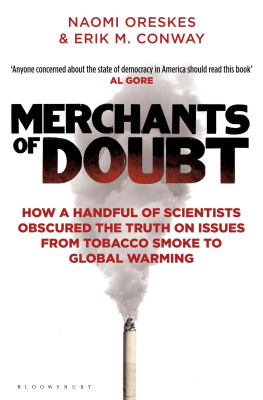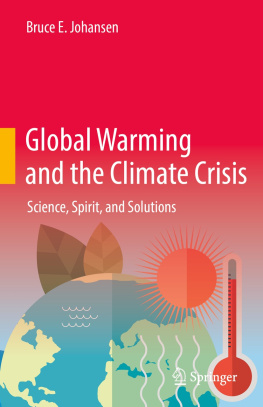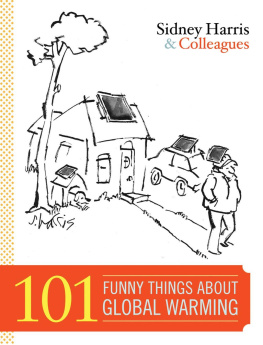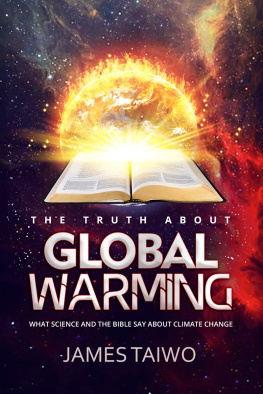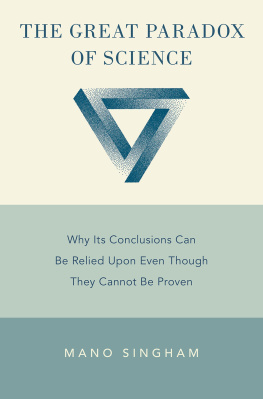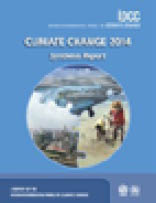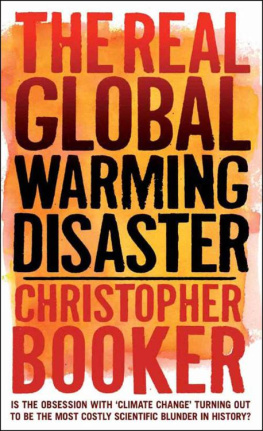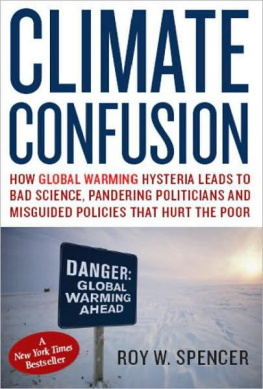
To Hannah and Clara
Its in your hands now.
This generation has altered the composition of the atmosphere on a global scale through a steady increase in carbon dioxide from the burning of fossil fuels.
Lyndon Johnson
Special Message to Congress, 1965
The trouble with Americans is that they havent read the minutes of the previous meeting.
Adlai Stevenson
Contents
2. Strategic Defense, Phony Facts, and the
Creation of the George C. Marshall Institute
4. Constructing a Counternarrative:
The Fight over the Ozone Hole
5. Whats Bad Science? Who Decides?
The Fight over Secondhand Smoke
7. Denial Rides Again: The Revisionist
Attack on Rachel Carson
: Of Free Speech and Free Markets
: A New View of Science
Ben Santer is the kind of guy you could never imagine anyone attacking. Hes thoroughly moderateof moderate height and build, of moderate temperament, of moderate political persuasions. He is also very modestsoft-spoken, almost self-effacingand from the small size and nonexistent dcor of his office at the Lawrence Livermore National Laboratory, you might think he was an accountant. If you met him in a room with a lot of other people, you might not even notice him.
But Santer is no accountant, and the world has noticed him.
Hes one of the worlds most distinguished scientiststhe recipient of a 1998 MacArthur genius award and numerous prizes and distinctions from his employerthe U.S. Department of Energybecause he has done more than just about anyone to prove the human causes of global warming. Ever since his graduate work in the mid-1980s, he has been trying to understand how the Earths climate works, and whether we can say for sure that human activities are changing it. He has shown that the answer to that question is yes.
Santer is an atmospheric scientist at the Lawrence Livermore National Laboratorys Model Diagnosis and Intercomparison Project, an enormous international project to store the results of climate models from around the globe, distribute them to other researchers, and compare the models, both with real-world data and with each other. Over the past twenty years, he and his colleagues have shown that our planet is warmingand in just the way you would expect if greenhouse gases were the cause.
Santers work is called fingerprintingbecause natural climate variation leaves different patterns and traces than warming caused by greenhouse gases. Santer looks for these fingerprints. The most important one involves two parts of our atmosphere: the troposphere, the warm blanket closest to the Earths surface, and the stratosphere, the thinner, colder part above it. Physics tells us that if the Sun were causing global warmingas some skeptics continue to insistwed expect both the troposphere and the stratosphere to warm, as heat comes into the atmosphere from outer space. But if the warming is caused by greenhouse gases emitted at the surface and largely trapped in the lower atmosphere, then we expect the troposphere to warm, but the stratosphere to cool.
Santer and his colleagues have shown that the troposphere is warming and the stratosphere is cooling. In fact, because the boundary between these two atmospheric layers is in part defined by temperature, that boundary is now moving upward. In other words, the whole structure of our atmosphere is changing. These results are impossible to explain if the Sun were the culprit. It shows that the changes we are seeing in our climate are not natural.
The distinction between the troposphere and the stratosphere became part of the Supreme Court hearing in the case of Massachusetts et al. v. the EPA, in which twelve states sued the federal government for failing to regulate carbon dioxide as a pollutant under the Clean Air Act. Justice Antonin Scalia dissented, arguing that there was nothing in the law to require the EPA to actbut the honorable justice also got lost in the science, at one point referring to the stratosphere when he meant the troposphere. A lawyer for Massachusetts replied, Respectfully, Your Honor. It is not the stratosphere. Its the troposphere. The justice answered, Troposphere, whatever. I told you before Im not a scientist. Thats why I dont want to deal with global warming.
But we all have to deal with global warming, whether we like it or not, and some people have been resisting this conclusion for a long time. In fact, some people have been attacking not just the message, but the messenger. Ever since scientists first began to explain the evidence that our climate was warmingand that human activities were probably to blamepeople have been questioning the data, doubting the evidence, and attacking the scientists who collect and explain it. And no one has been more brutallyor more unfairlyattacked than Ben Santer.
The intergovernmental panel on Climate Change (IPCC) is the worlds leading authority on climate issues. Established in 1988 by the World Meteorological Organization and the United Nations Environment Program, it was created in response to early warnings about global warming. Scientists had known for a long time that increased greenhouse gases from burning fossil fuels could cause climate changethey had explained this to Lyndon Johnson in 1965but most thought that changes were far off in the future. It wasnt until the 1980s that scientists started to worryto think that the future was perhaps almost hereand a few mavericks began to argue that anthropogenic climate change was actually already under way. So the IPCC was created to evaluate the evidence and consider what the impacts would be if the mavericks were right.
In 1995, the IPCC declared that the human impact on climate was now discernible. This wasnt just a few individuals; by 1995 the IPCC had grown to include several hundred climate scientists from around the world. But how did they know that changes were under way, and how did they know they were caused by us ? Those crucial questions were answered in Climate Change 1995: The Science of Climate Change , the Second Assessment Report issued by the IPCC. Chapter 8 of this report, Detection of Climate Change and Attribution of Causes, summarized the evidence that global warming really was caused by greenhouse gases. Its author was Ben Santer.
Santer had impeccable scientific credentials, and he had never before been involved in even the suggestion of impropriety of any kind, but now a group of physicists tied to a think tank in Washington, D.C., accused him of doctoring the report to make the science seem firmer than it really was. They wrote reports accusing him of scientific cleansingexpunging the views of those who did not agree. Santer had made changes to the report, but not to deceive anyone. The changes were made in response to review comments from fellow scientists.
Every scientific paper and report has to go through the critical scrutiny of other experts: peer review. Scientific authors are required to take reviewers comments and criticisms seriously, and to fix any mistakes that may have been found. Its a foundational ethic of scientific work: no claim can be considered validnot even potentially validuntil it has passed peer review.
Peer review is also used to help authors make their arguments clearer, and the IPCC has an exceptionally extensive and inclusive peer review process. It involves both scientific experts and representatives of the governments of the participating nations to ensure not only that factual errors are caught and corrected, but as well that all judgments and interpretations are adequately documented and supported, and that all interested parties have a chance to be heard. Authors are required either to make changes in response to the review comments, or to explain why those comments are irrelevant, invalid, or just plain wrong. Santer had done just that. He had made changes in response to peer review. He had done what the IPCC rules required him to do. He had done what science requires him to do. Santer was being attacked for being a good scientist.

